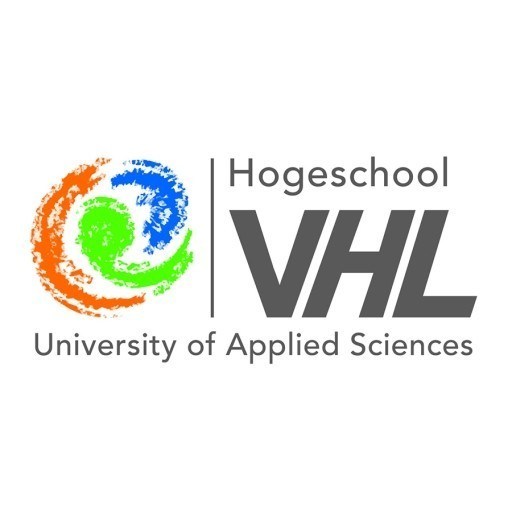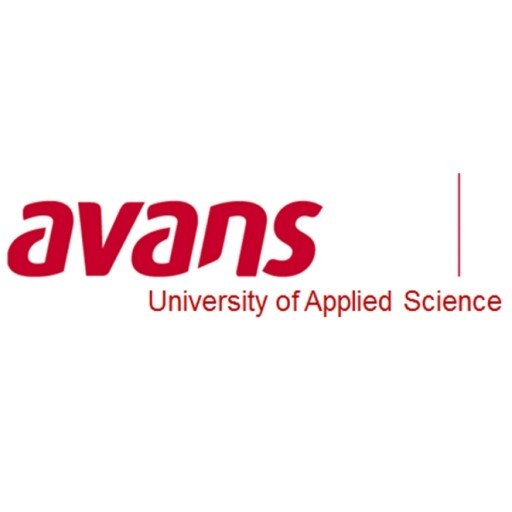Photos of university / #dehaagsehogeschool
Program Description: The Bachelor’s degree in Process and Food Technology at The Hague University of Applied Sciences offers students an in-depth understanding of the scientific and technological principles underlying the food industry and process engineering. Thisprogramme is designed to prepare students for a dynamic career within the food production sector, focusing on innovation, sustainability, and efficiency in food processing techniques. Throughout the program, students gain comprehensive knowledge of biochemistry, microbiology, process engineering, and product development, enabling them to develop safe, sustainable, and high-quality food products. The curriculum combines theoretical coursework with practical laboratory exercises, industry projects, and internships, providing students with valuable real-world experience. Students learn to analyze production processes, optimize operations, and manage food safety protocols. The program emphasizes sustainable practices and the development of innovative solutions to complex challenges faced by the food industry. Graduates are well-equipped to work in various roles such as process engineers, quality control specialists, product development managers, and research scientists. The program is taught in English and is characterized by a collaborative learning environment, fostering teamwork, critical thinking, and problem-solving skills. By the end of the degree, students will have developed a strong foundation in food technology, process engineering, and innovation management, enabling them to contribute to the development of healthier, safer, and more sustainable food products and processes benefiting society and the environment. The Hague University of Applied Sciences provides excellent facilities, industry connections, and opportunities for international exposure, ensuring graduates are highly prepared for the global food industry challenges.
The Bachelor’s degree program in Process and Food Technology at The Hague University of Applied Sciences is designed to prepare students for a dynamic and evolving industry focused on the development, production, and management of food and process engineering solutions. Throughout this comprehensive program, students gain in-depth knowledge of the scientific principles underlying food production, processing techniques, and sustainability practices. The curriculum combines theoretical coursework with practical applications, ensuring graduates are well-equipped to address real-world challenges in the food industry.
Students will explore core topics such as food chemistry, microbiology, process engineering, quality assurance, and safety standards. The program emphasizes innovation and sustainability, encouraging students to develop environmentally friendly processes and implement cutting-edge technologies. Courses also cover logistical aspects of food supply chains, packaging innovations, and regulatory requirements, providing a holistic understanding of the industry.
In addition to technical expertise, the program fosters key skills in project management, teamwork, and communication, which are essential for leadership roles in the field. Practical training is a major component, with laboratory work, internships, and industry projects designed to give students hands-on experience. This active learning approach helps students translate theoretical knowledge into practical solutions suitable for the food processing sector.
Graduates of the Process and Food Technology program are prepared for diverse career paths in food production companies, processing plants, research and development departments, and regulatory agencies. They are equipped to innovate and optimize food processing methods, improve product quality, and contribute to sustainable industry practices. The program’s international orientation also opens doors to global career opportunities, reflecting the interconnected nature of modern food industries.
Overall, the Process and Food Technology program aims to develop competent professionals who are capable of leading technological advancements in the food industry while prioritizing safety, sustainability, and consumer health. Upon completion, students will hold a bachelor’s degree that empowers them to become proactive contributors to the future of food technology and processing innovations.
Admission requirements
TOEIC 670 * 2 (The minimum score of 670 applies to the 'Listening and Reading' module. Both the modules 'Speaking and Writing' and 'Listening and Reading' must be successfully completed) Cambridge ESOL * Certificate in Advanced English (CAE) * Certificate of Proficiency in English (CPE) Grades A / B / C
Other requirements
- taaltoets cijfer TOEIC 670 * 2 (The minimum score of 670 applies to the 'Listening and Reading' module. Both the modules 'Speaking and Writing' and 'Listening and Reading' must be successfully completed) Cambridge ESOL * Certificate in Advanced English (CAE) * Certificate of Proficiency in English (CPE) Grades A / B / C
- minimum kennis (ISPAC: overige vereisten) One of the eligibility criteria is that you passed your exams in the following subjects: mathematics, physics, chemistry, and preferably biology.
- vooropleiding (ISPAC: vereiste vooropleiding) High school diploma such as VWO, an International Baccalaureate, French Baccalaureate, German Abitur or GCE-A levels.
The financing options for the Process and Food Technology program at The Hague University of Applied Sciences offer students multiple pathways to support their studies. Tuition fees are an important consideration, and for international students, the costs are generally around €8,000 to €12,000 per year, depending on the student’s nationality and residency status. Dutch and EU/EEA students benefit from lower tuition rates, usually hovering around €2,200 annually, which can be paid in installments or as a lump sum. Scholarships and grants are available for eligible students, including government grants for Dutch students and various scholarship programs for international students based on academic merit, financial need, or specific fields of interest such as technology and food sciences. The Dutch government offers student loans through DUO (Dienst Uitvoering Onderwijs), which provides financial support to students pursuing higher education in the Netherlands. These loans can be used to cover tuition costs and living expenses, with flexible repayment options after graduation.
Part-time employment is another common way students finance their studies. The Hague University of Applied Sciences encourages students to find part-time jobs, both on campus and in the local area, which can supplement income and provide valuable work experience. The university's Career Services and job portals assist students in finding suitable employment opportunities. Additionally, many students rely on family support, savings, and private funding sources to cover their expenses throughout the duration of the program.
Financial planning is crucial, as the cost of living in The Hague must also be considered. Estimated monthly living costs for students are approximately €900 to €1,200, including accommodation, food, transportation, and other personal expenses. The university offers advice and resources to help students budget effectively and explore affordable housing options, such as student dormitories, shared apartments, or homestays.
International students are advised to explore scholarship opportunities early and to verify eligibility criteria and application deadlines regularly. Some students may also consider educational loans or sponsorships from private organizations, especially those whose home countries offer bilateral education funding programs with the Netherlands.
Overall, financing a degree in Process and Food Technology at The Hague University of Applied Sciences requires careful planning and utilization of available resources. Combining personal savings, government grants, scholarships, part-time work, and potential student loans can make studying at this institution accessible and financially manageable for many students.
The Bachelor’s degree program in Process and Food Technology at The Hague University of Applied Sciences is designed to prepare students for a dynamic career in the food and process industries. The program emphasizes both theoretical knowledge and practical skills necessary to develop, improve, and innovate food products and production processes. Throughout the program, students gain a comprehensive understanding of food science, process engineering, microbiology, quality management, and sustainability principles. The curriculum includes courses such as food chemistry, process design, food safety regulations, product development, and environmental considerations, ensuring graduates are well-equipped to address contemporary challenges in the food sector.
Students have the opportunity to engage in hands-on projects, laboratory work, and internships with industry partners, facilitating real-world experience and professional networking. The program promotes an international perspective, preparing students to work in global markets. It encourages innovation, problem-solving, and critical thinking, essential skills for advancing in various roles within the food processing industry. Graduates from this bachelor’s program can pursue careers in food manufacturing, quality assurance, research and development, or technical consultancy. The program also provides a solid foundation for those interested in further specialization or postgraduate studies.
The university supports a stimulating learning environment with modern laboratories, experienced instructors, and industry collaborations. The program is delivered in a full-time format and typically takes three years to complete. It is ideal for students passionate about food technology, sustainability, and improving production processes. By the end of the program, students will be capable of designing, optimizing, and managing food production processes, ensuring high-quality and sustainable food products in an increasingly competitive market.







